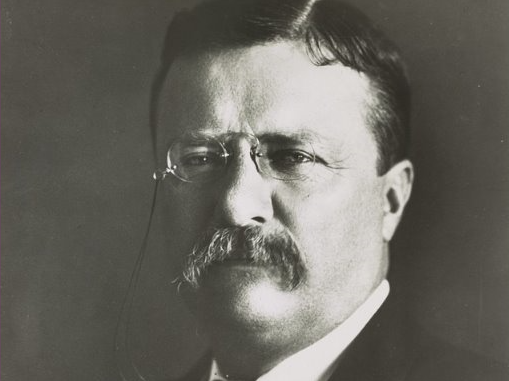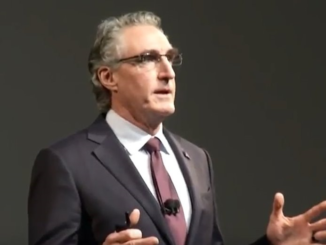
We’ve long been opponents to the State of North Dakota footing any part of the bill for the proposed Theodore Roosevelt Presidential Library & Museum. In fact, I first wrote about this in January of 2018. A lot has changed with the project in the 15 months since publishing that. Chief among them is the proposed increase to the contribution of state dollars.
According to the Theodore Roosevelt Presidential Library & Museum website, Senate Bill 2003 was passed by the Legislature in 2017 to make it possible for the State of North Dakota to:
“… [reinforce] its support of the presidential library project by re-appropriating the remaining $11.25 million of the $12 million that was appropriated during the 2013 legislative session and carried over in 2015.”
This now seems like chump change compared to what Governor Doug Burgum proposed in his Executive Budget back in December, when he said:
“To honor his life and legacy, we propose investing $50 million of Legacy Fund earnings in the Theodore Roosevelt Presidential Library and Museum and leveraging this investment with a 2 to-1 private match.”
As you can see, the library has been a topic of conversation for years now. But with Governor Burgum’s proposal, it seems the pressure is on to get it done— now.
It’s interesting how these things work though. Until early last month, a lot of legislators had no idea what bill funding for the library would even end up in. On March 13th, Burgum testified before the Senate Appropriations Committee in support of his $50 million proposal. At the time, an amendment to House Bill 1018 — the Department of Commerce budget — was being considered to help fund the project.
As it turns out though, funding for the Theodore Roosevelt Presidential Library & Museum has landed in House Bill 1320. Only now it proposes to use $15 million from the General Fund and then authorizes the governor to take out a loan from the Bank of North Dakota for up to $35 million more. There’s just one problem. The way in which it landed in HB 1320 actually makes it unconstitutional. I’ll explain.
In its original form, HB 1320 was a bill “relating to Red River valley water supply project”. I won’t get into the specifics of that version. If you’re interested in them, you can listen to Rep. Shannon Roers Jones (R – District 46) explain them on the House floor here. Suffice it to say, the bill had absolutely noting to do with the Theodore Roosevelt Presidential Library & Museum. When it passed the House on February 13th, by a margin of 73-19, it did so as a bill “relating to the Red River valley water supply project”.
Now, let’s fast forward to today where the Senate took up HB 1320 for consideration. You’ll notice that the version they considered was completely different from the one the House passed. Yep, that’s right. Instead of a bill “relating to the Red River valley water supply project”, its been transformed into one “relating to the Theodore Roosevelt presidential library and museum endowment fund”. Its literally been turned into an entirely different bill than the one passed on the House side. Yet, the Senate passed it on a vote of 34-13.
Not only is this problematic — in and of itself — that the Senate would take a bill and turn it into something completely unrelated to what was passed in the House, but North Dakota’s State Constitution actually prohibits such a thing. We find it in Article IV, Section 13:
“No law may be enacted except by a bill passed by both houses, and no bill may be amended on its passage through either house in a manner which changes its general subject matter. No bill may embrace more than one subject, which must be expressed in its title; but a law violating this provision is invalid only to the extent the subject is not so expressed.” (Emphasis Added)
It doesn’t take a rocket scientist to figure out that the Theodore Roosevelt Presidential Library & Museum is most certainly a change in “general subject matter” when compared to the Red River valley water supply project. They’re simply not related— at all.
The technical term for maintaining original subject matter is known in legislative circles as “germaneness”. According to the National Conference of State Legislatures, this principle is “well established”:
“The principle of germaneness was relatively unknown in general parliamentary law before the late 1700s. The Congress of the Confederation—the precursor to the Congress of the United States—made an attempt to address germaneness in 1781. The first formal germaneness rule was adopted by the U.S. House of Representatives in 1789. The text of the original rule was modified in 1822 to read: ‘No motion or proposition, on a subject different from that under consideration, shall be admitted under color of amendment.’ This wording became the basis for most modern germaneness provisions.” (Emphasis Added)
Each member of the Legislative Assembly takes an oath of office in which they swear to “support the Constitution of the United States and the Constitution of the State of North Dakota”. Does that oath actually mean anything to them? I’m fair enough to believe that the majority of those who voted in the Senate were likely unaware of the constitutional provision prohibiting such an amendment. But when this comes to the floor of the House — as early as tomorrow (Thursday) — that body is going to be aware of it. What will they do? Will they ignore it and vote for the bill? Or will they do the right thing, honor their oath of office, and hit the red button?
Make no mistake about it. The upcoming vote on HB 1320 is about much more than whether the state should fund the Theodore Roosevelt Presidential Library & Museum. It’s about integrity. And we’re about to find out who has it and who doesn’t.
PLEASE LIKE & SHARE!
Sources:
- https://www.trpresidentiallibrary.org/foundation/
- https://theminutemanblog.com/2018/01/08/nd-legislature-shouldnt-be-funding-the-theodore-roosevelt-presidential-library/
- https://www.legis.nd.gov/assembly/65-2017/documents/17-0511-05000.pdf
- https://bismarcktribune.com/news/local/gov-burgum-emphasizes-vision-in-push-for-theodore-roosevelt-presidential/article_1707abde-8940-55f8-a0e4-58146ac915d4.html
- https://www.nd.gov/omb/sites/omb/files/documents/agency/financial/state-budgets/docs/budget/executivebudgetsummary2019-21.pdf
- https://www.legis.nd.gov/assembly/66-2019/bill-index/bi1018.html
- https://www.am1100theflag.com/news/4702-senator-mathern-seeks-compromise-teddy-roosevelt-library
- https://www.legis.nd.gov/assembly/66-2019/documents/19-0300-01000.pdf
- http://video.legis.nd.gov/en/PowerBrowser/PowerBrowserV2/20190417/-1/11079?startposition=20190213135620
- https://www.legis.nd.gov/assembly/66-2019/documents/19-0300-03000.pdf
- https://www.legis.nd.gov/constit/a04.pdf
- https://www.legis.nd.gov/constit/a11.pdf





